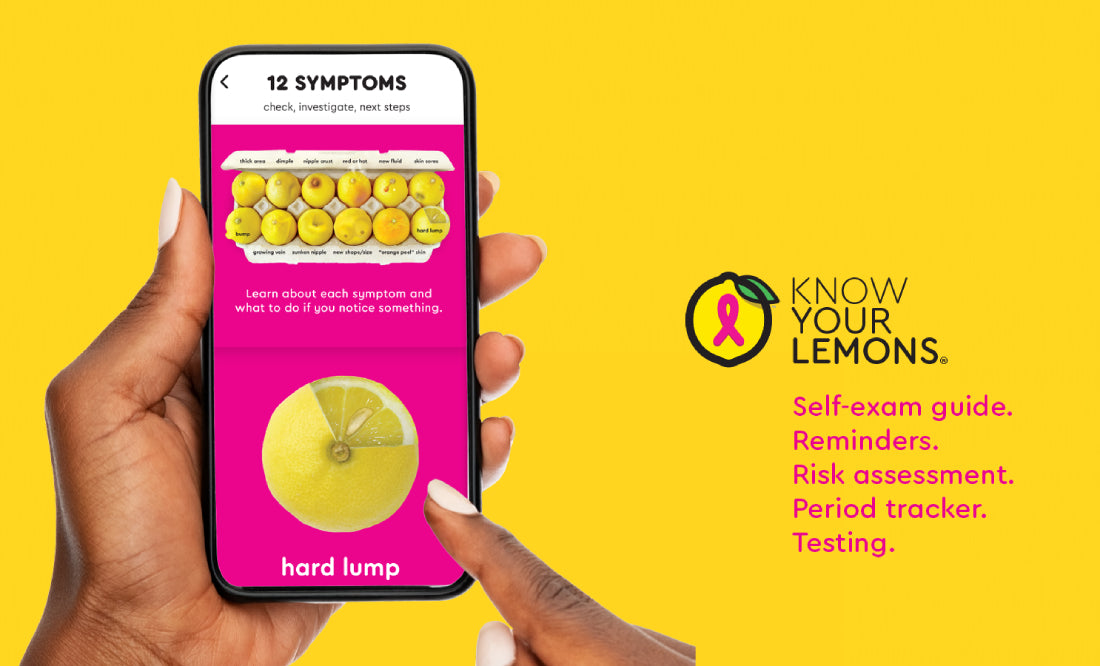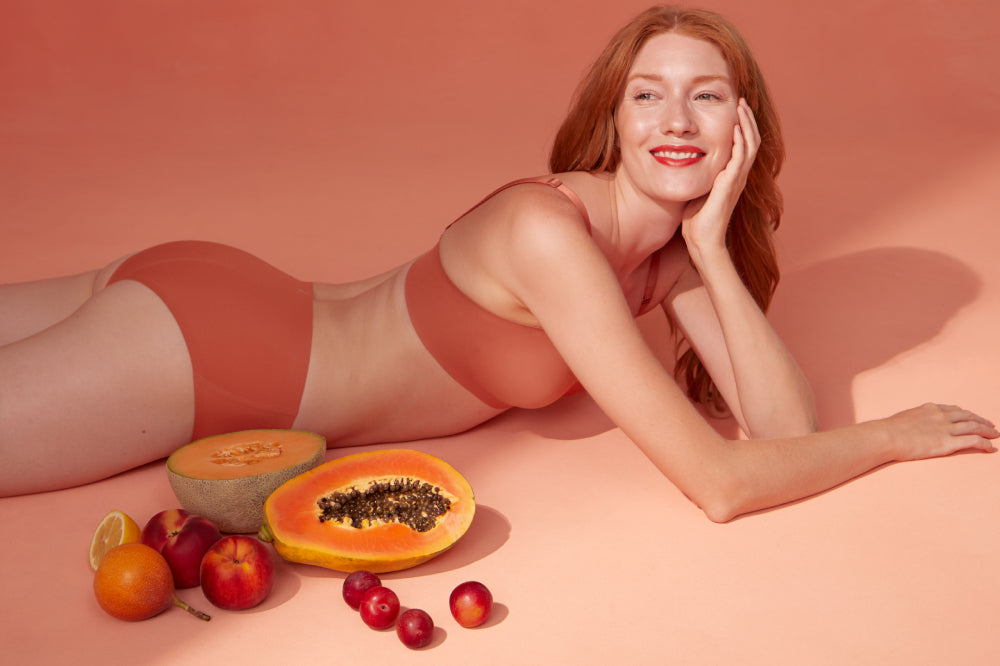How Your Boobs Change Throughout Your Monthly Cycle—and Why You Should Keep Track
It’s a tale as old as time: one day you’re a flat chested pre-teen and the next you're trying to figure out the cup size of your burgeoning, and ever-changing, boobs.
If you happen to own a pair, you’re probably acutely aware of their tendency to change like the weather. One day they’re firm and perky, the next they’re tender and squishy. (You'd think they'd come with an owner's manual).
What you may not know, however, is that the culprit behind those pesky breast fluctuations is the ebb and flow of hormones throughout your monthly hormonal cycle.
For Corrine Ellsworth-Beaumont, CEO of Know Your Lemons, a non-profit saving lives through creative breast health education for early detection, “I always noticed breast tenderness or lumpiness, but I never connected it to a menstrual cycle,” she says. “Then I was like, oh, we have breast cycles.”
Though most folks with breasts are intimately aware of the constant changes, rarely are they encouraged to track their breast cycles like, say, a period. But, according to Corrine, this is a crucial component of monitoring breast health — including finding the optimal window for self exams.
“Women should know their bodies, women should be familiar with their breasts,” she tells me. “There's no shame in being diligent about your health.”
So, consider this your crash course in breast cycles and the changes you can expect (and have likely already encountered) throughout your hormonal cycle.
So, You're on Your Period
Are your breasts tender, lumpy, and sore? Welcome to your period! In case bloating and cramps weren’t enough to contend with, during your menstrual phase the rise (and subsequent nosedive) in progesterone and estrogen are the force behind the breast changes you’re noticing.
During this phase, as well as your premenstrual phase, lumpiness can often be traced back to swollen milk glands triggered by a rise in hormones as your body prepares for pregnancy. Even the texture and size of your boobs is subject to change at this juncture of your hormonal cycle — so, don’t be surprised if your boobs go up a full cup size.
Though these changes are typical, these pronounced, seemingly overnight changes can cause alarm. That’s why Corrine generally advises against self-examining your breasts during this phase.
Instead, she recommends taking note of changes and checking in for a full self-exam post-period once your hormones have balanced out (more on that in just a second!).
Wait, Now My Boobs Are...Perky?
Whew! It doesn’t hurt to put on a bra anymore, nor do my boobs feel like ripe jello packets — thank the stars, my period must finally be over. During the latter half of your follicular phase, as your body prepares for ovulation (and potential pregnancy), your hormones are likely to balance out again.
As ovulation looms, your estrogen levels will start to climb again (being a woman is a real rollercoaster). In addition to clearer skin and an increased sex drive, perkier boobs are among the blessings of this particularly benevolent hormonal phase.
Any lumpiness — and slew of other unpleasant hormonal side effects — you experienced throughout your period have likely diminished at this point, making it an ideal time to check in with your boobs. Whether you’re doing a self-exam from home or getting a mammogram, this is an ideal opening in which hormonal interference is minimal.
If you aren’t already in the habit, consider slotting in monthly breast check-ins. According to Corrine, “Globally, 90% of women diagnosed with breast cancer find it themselves.” Though there are many types of breast cancer that are virtually undetectable, most can be spotted early on — which can be life saving.
Not sure how to keep track of your breast cycle? In addition to helpful tips on how to talk to your health practitioner or how to do a self-exam, the Know Your Lemons app can track your menstrual cycle, prompting you when the time is most ideal to check on your breast health.
The app doesn’t collect any data, but it will help you decipher whether a change you’ve noticed is abnormal and guide you through next steps — whether it be what to expect during an ultrasound or reaching out to a friend. “Sometimes the next step we need is a little social support,” says Corrine.
The Swelling and Tenderness Is Real
It’s day 15 (ish) of your hormonal cycle and your body is ready to cue the progesterone. As you inch closer to your period and your hormones peak, you’ll become acquainted with those familiar symptoms of breast and nipple tenderness.
In fact, don’t be alarmed if your chest is feeling more inflated by the minute. With progesterone on the rise, it’s not uncommon for water retention to cause breast swelling.
Corrine jokes that her breasts tend to get “chatty” around this time. “It’s that last half of your cycle when your breasts get talkative,” she says. “I’m like, my breasts will not stop talking to me.”
There are tons of factors, including environment, diet, and mood that can influence breast fluctuations. As you’ve likely already intuited, every cycle is different. According to Corrine, there’s even research to suggest a link between breast tenderness and caffeine consumption.
The good news is, all the heaviness, tenderness, and other dramatic changes you notice during this phase will begin to soften once you get your period. Before you know it, it’ll be time to slip into a pair of Leakproof Underwear and do it all again.
—
We hope you found this post informative — but remember: we’re not doctors and this post is not medical advice! While all posts are fact-checked and well researched, we always recommend you chat with your doctor about any questions or concerns you might have regarding a medical condition. We’re here to support and educate, but never with the aim of disregarding professional medical advice you’ve been given. Phew, now that that’s out of the way, you can go on living unapologetically free.














